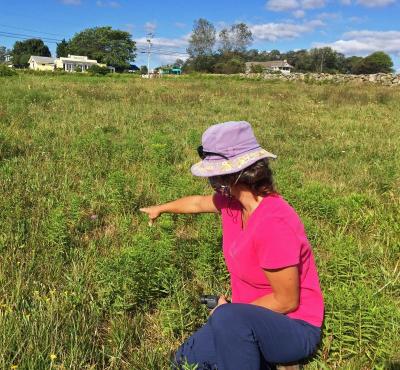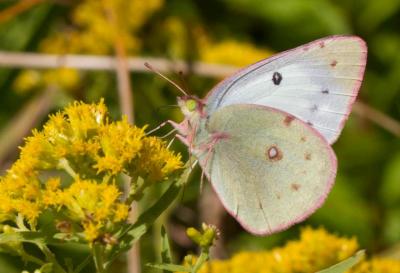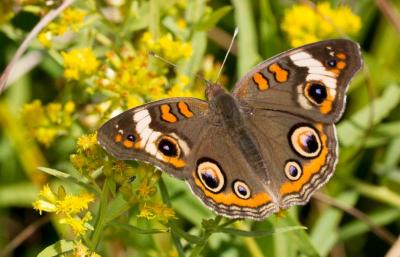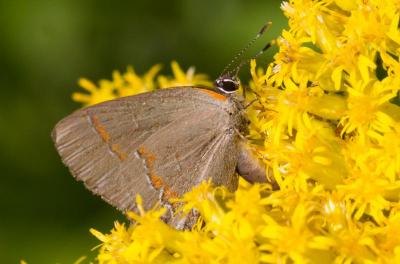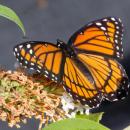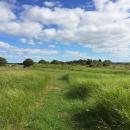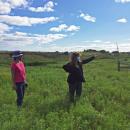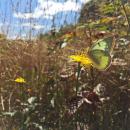Butterfly hunters: Looking for Lepidoptera
What can draw a handful of people from all over the state to Dartmouth during a pandemic?
A chance to glimpse something rare and beautiful: butterflies that are not often found in this part of the world.
Six butterfly hunters — including one from as far afield as Brookfield, MA — took part in the Massachusetts Butterfly Club’s second butterfly count at Mass Audubon’s Stone Barn Farm and Allens Pond Wildlife Sanctuary on Sept. 12.
“We go out and we try to find rare butterflies,” explained club representative Lauren Miller-Donnelly, who was leading the count. “There are a lot of late summer butterflies on the coast of Massachusetts.”
Although the strong sea breeze deterred some of the insects, many could still be seen fluttering here and there in patches of wildflowers at the Horseneck Road sanctuary.
“Butterflies are amazing,” said Miller-Donnelly. “Just like birdwatching, it’s a really awesome hobby.”
Last week, she noted, participants found a rare fiery skipper, a butterfly that occasionally heads north from its more typical home in the southern U.S. as the summer wanes.
“The butterfly club wants to see a fiery skipper today,” Miller-Donnelly laughed.
The Massachusetts Butterfly Club — a chapter of the North American Butterfly Association, which runs a butterfly census every year on July 4 — worked in conjunction with Mass Audubon, switching groups at different locations to maintain social distancing safety guidelines.
Club members keep track of the number and types of butterflies they find online.
“This particular area at this time of year brings butterflies that stray northward from Florida,” explained Dolores Price, who drove down from Grafton in central Massachusetts to see some rare insects.
“Historically, it’s always been a good spot,” she added.
Wendy Miller of Providence said that she enjoys butterfly spotting because “It gets you outside, in the great outdoors,” while Price cited the “challenge of identifying” the bugs as a motivating factor.
Last Saturday, Miller said, the group “saw some really beautiful things,” including an ocola skipper and a sachem alongside the fiery skipper — all out of the ordinary in New England.
“They’re nice butterflies to see around here,” said Price.
“They’ll die,” she added bluntly. “They live most of their life cycle in the warmer states, but for some reason we’re warmer still in the fall, so they stray up.”




